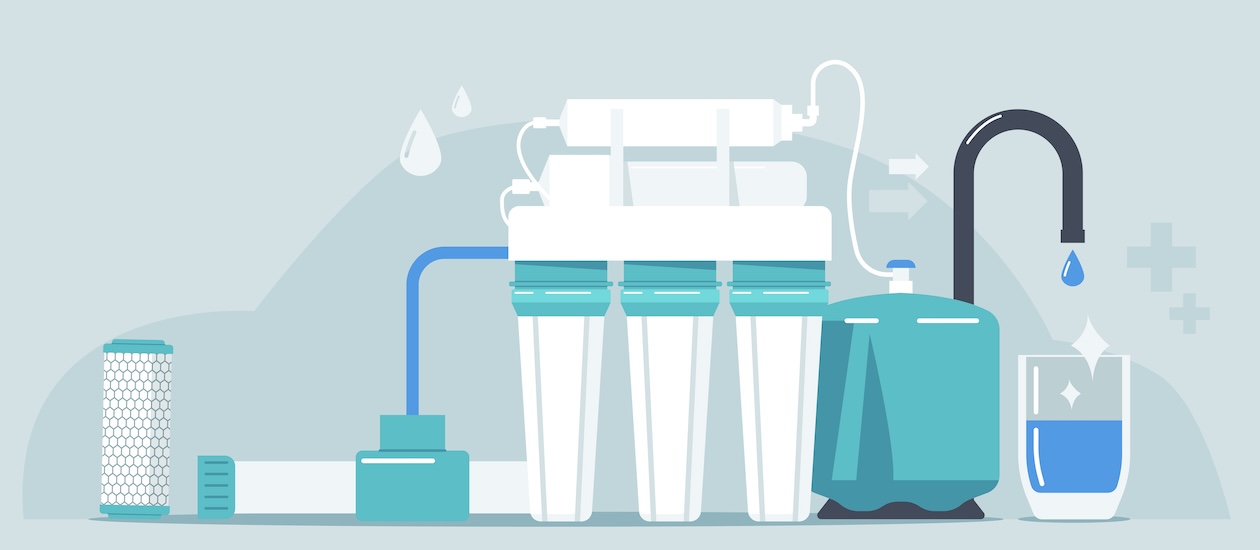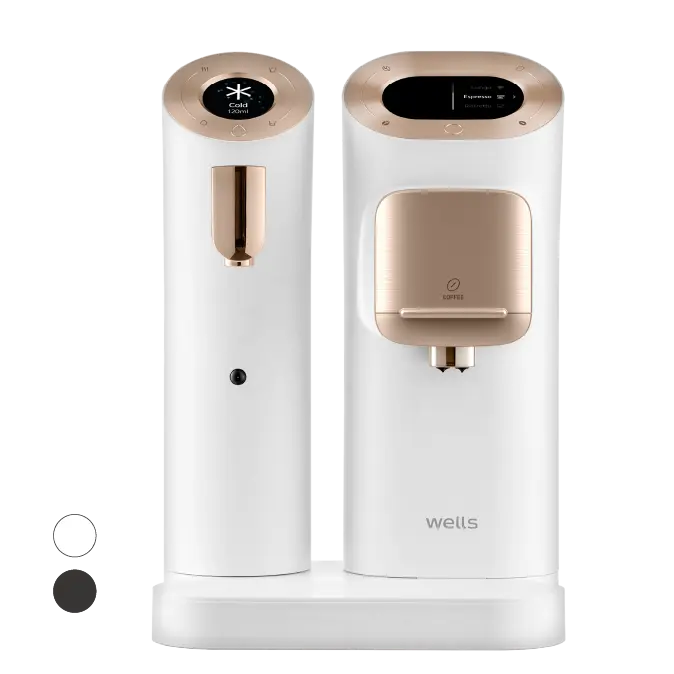Water is essential in people’s daily lives and plays an important role in maintaining health. This is important not only for the beverage but also for culinary purposes, as well as cleaning and sanitation. However, it is sad that not everybody gets to experience this luxury of direct access to pure water. Any foreign substance in water, whether from man-made activities or naturally occurring minerals in water, will affect its quality and have health implications. Modern water treatment technologies provide a way to ensure that the water is safe from chemicals and elements. In this article, we will detail the 7 advanced technologies in water filtration that offer pure, safe water for drinking and will protect our health and improve our quality of life.
Top 7 Advanced Water Filtration Systems

1. Activated Carbon Filters
Activated carbon filters use an adsorption mechanism whereby contaminants attach themselves to the externally available carbon surfaces. This method hinders the penetration of items like chlorine and sediments; it also improves the chemical nature of volatile organic compounds (VOCs) and the taste and smell of water. Activated carbon filters are commonly applied in household water filters, pitcher filters, and some faucet-mounted settings. So, they are all vital in ensuring people have access to fresh drinking water daily. They are especially valuable for enhancing water quality by eliminating common pollutants in tap water, making them a popular option for home filtration systems.
2. Reverse Osmosis Systems
Reverse osmosis systems generally use a semi-permeable membrane that effectively filters out dissolved ions, molecules and macromolecules from water. This membrane separates clean water and prevents the passage of other substances like chemicals and salts. It also greatly reduces the levels of pollutants, including heavy metals, salts and dissolved solids, making the water safe for drinking. Reverse osmosis systems are often placed under the sink in kitchen design and incorporated into whole-house RO systems for multiple household water purification. They are also portable for camping or RV trips when water purification is required. This water filter brand boasts of its ability to deliver excellent drinking water because it effectively removes many pollutants in tap water.
3. Ultraviolet (UV) Purifiers
UV purifiers work on the principle that light in the ultraviolet spectrum can help eliminate bacteria from water. This light destroys the genetic material of many pathogenic organisms in the water, thus hindering them from being able to multiply or infect the human body, making the water safe for drinking. As such, UV purifiers are used to eliminate water-born bacteria and other pathogens to reasonable levels. Nevertheless, it is vital to understand that UV purification does not eliminate chemical substances and particles suspended in water.
In several contexts, UV purifiers are employed in point-of-entry systems for houses and buildings, disinfecting water at the initial phase of the plumbing system. They are also effective for cars and portable cleaners for outdoor activities like camping or hiking, where clean water is needed. UV purifiers are usually used as additional digitization systems for water purification systems to eliminate pathogenic bacteria and viruses. Due to the uniqueness of their function in eradicating micropollutants, UV purifiers should be incorporated into water treatment systems to ensure water safety and quality.
4. Ceramic Filters
Demineralization through ceramic filters is accomplished mechanically through a filter of porous ceramic material to remove bacterial count, sediments and other impurities in water. The water passed through this mechanism has been proven to kill bacteria and protozoa, which makes it a useful tool to enhance water quality in different situations. It is crucial to realize that ceramic filters can filter out some particles but not viruses or chemically alterable contents.
Specifically utilized in gravity-fed filtration units, ceramic filters are well suited to areas where electricity or pressurized water supply is not easily accessible or consistent. These are often employed in emergency water treatment kits to guarantee that people can drink clean water in natural catastrophes or outdoors. Further, ceramic filters are used in portable filtration systems for campers, hikers, travelers and other persons who need a solid compact filter to ensure they always have access to clean drinking water. These features, complemented by their long life and efficiency in eliminating waterborne pathogens, make ceramic filters ideal for people who need effective and reliable water treatment techniques in difficult conditions.
5. Distillation Systems
Its operation involves making the water being treated in the distillation system boil and turn into steam, which is then condensed to form liquid water. This method is the most effective one in separating the water from impurities, which are left behind in the boiling chamber or remain as a deposit. The distillation process also helps to eliminate many polluting factors present in water, such as bacteria and viruses, heavy metals, salts, and others, as it produces water of very high purity.
These types of systems are typically installed in countertop distillers that are meant for home use, making clean drinking water available at the kitchen sink. Distillation provides a clean source of water for laboratory work and analyses due to the ability to meet quality specifications in laboratories. Furthermore, distillation plays a role in purging agents in industries where the purity of the product is key, such as in producing pharmaceuticals or electronic equipment.
6. Ion Exchange Filters
Ion exchange filters replace some unfavourable ions from the water, such as calcium and magnesium, with more preferable ions, such as sodium or potassium. This process happens in a resin bed unit, where the resin beads pull ions from the water and replace other ions that stick to the surface of the resin beads.
These filters are specifically useful for water softening since they allow only water passages without hardness minerals that form scales on the pipes and water-using appliances. As the result of calcium and magnesium with sodium or potassium, ion exchange filters can free the detergent of the harm from hard water, including soap scum, while enhancing the taste of water.
Ion exchange filters are well-known for their use in water softeners that help make water suitable for home usage, such as bathing, washing clothes, and the plumbing system. They also play a pivotal role in industrial water treatment since water with parameters that meet certain standards has to be used in certain manufacturing processes, coolants or boilers. Due to the efficiency and convenience of applying ion exchange filters in home and industrial usage and in the softening of water, ion exchange filters are thus the recommended product for customers seeking to solve the problems associated with hard water or excessive mineral deposition.
7. Advanced 9-Step NanoFiltration Water System
The advanced 9-step NanoFiltration water system employs a sophisticated purification process using two specialized filters to ensure high water quality. The system begins with the Wells Multi-Carbon Plus water Filter, which removes heavy metals, sediments, and residual rust from the water. Following this initial filtration stage, the system progresses through a comprehensive 5-step filtering process to further purify the water by addressing specific contaminants according to the manufacturer’s specifications. The final stage features the Neo Nano Clean Filter, which adds another 4 filtration steps. This filter targets specific impurities with advanced NanoFiltration technology, enhancing the overall purification process.
This system is typically utilized in environments with stringent water quality standards, such as specialized industrial applications or locations where top-quality drinking water is essential. It effectively removes many impurities by incorporating multiple filtration stages, including advanced NanoFiltration technology, ensuring thorough purification tailored to diverse water treatment needs.
Conclusion
In conclusion, various advanced filtration technologies navigate the journey to pure, safe drinking water. From activated carbon filters to sophisticated 9-step nanofiltration systems, each method offers unique benefits and addresses different contaminants. The key to ensuring the health and well-being of yourself and your loved ones lies in choosing the right filtration system tailored to your specific needs and the challenges your water supply poses.
We encourage you to thoroughly assess your water quality and consider the contaminants you must target. Whether it’s removing chemical impurities, softening hard water, or eradicating microorganisms, you have a filtration solution. By making an informed decision, you can secure a supply of clean and safe drinking water, safeguarding your health and enhancing your quality of life with every sip.





